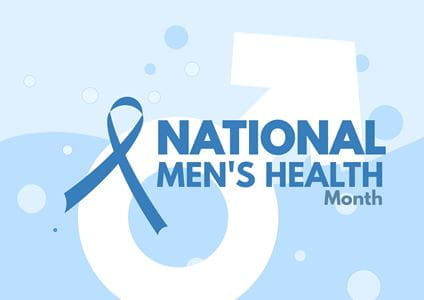June is National Men’s Health Month, a time to remind men of the health issues they face and what they can do to take charge of their health.
Men are significantly less likely than women to see a doctor or report symptoms to a health care provider. Only 60 percent of men go to the doctor for a yearly, routine check up, and 40 percent won’t go until something is seriously wrong.
“Despite these statistics, 20 percent of men report seeing a doctor so their significant other or a loved one will stop nagging them,” said Helen Bernie, DO, MPH, Director of Male Sexual and Reproductive Medicine and assistant professor of urology. Bernie also leads the state of Indiana’s only male sexual and reproductive medicine fellowship. “It’s important to encourage the men in your life to see a doctor. You can make an impact!”
Here are some other important facts about men’s health to know:
- The overall mortality rate is 41 percent higher for men than women, and it’s higher for men for 8 out of 10 leading causes of death—including heart disease, cancer, stroke and diabetes.
- 31 percent of men suffer depression in their lifetime and 9 percent of men have daily feelings of depression or anxiety. But only 1/4 talk to a mental health professional, and only 1/3 take medication. Pay attention to signs of depression and don’t be afraid to seek help.
- Prostate cancer is the second leading cause of cancer deaths for men in the United States. A man is 2 to 3 times more likely to get prostate cancer if his father, brother or son had it. Talk to your doctor about having PSA and DRE levels checked.
- Erectile dysfunction affects nearly 30 million men of all ages across the United States. If you’re having problems, see a urologist and make sure it’s not an early warning sign for something more serious, like heart disease, high blood pressure or high blood sugar.
